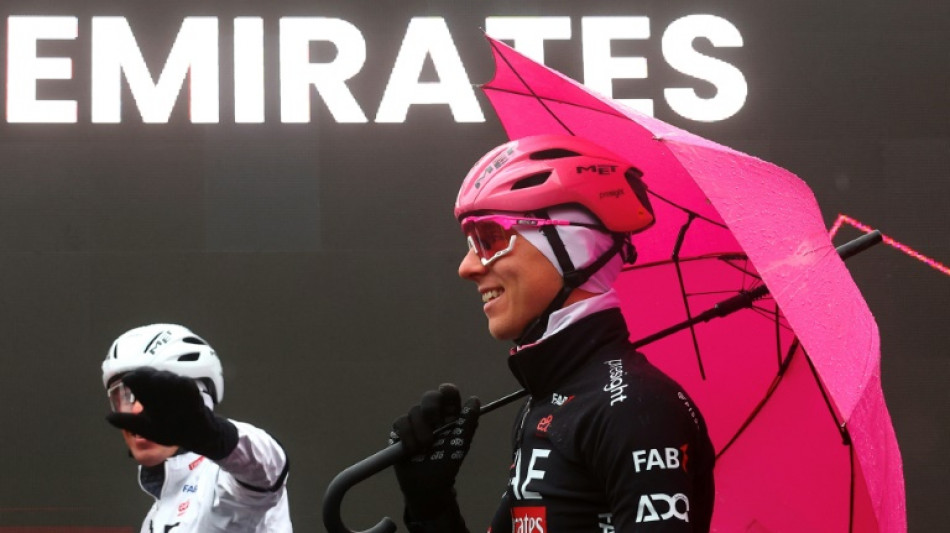

Hazardous weather causes Giro 16th stage to be shortened
The Giro d'Italia's 16th stage was shortened due to hazardous weather conditions, including heavy snowfall, on Tuesday after riders had threatened not to take part in the start of day's racing.
Riders were supposed to begin the 202-kilometre mountain stage between Livigno and Santa Cristina Val Gardena at 11:20am (0920 GMT) but plans were changed after hours of discussion and confusion.
Giro organisers RCS announced shortly before noon in Italy that they had moved the start to 11:50am, when riders were supposed to parade around snow-covered Livigno before heading to Prati allo Stelvio, 121km from the finish line, where the stage proper would get underway at around 2:00pm (1200 GMT).
But there was no one at the start line as riders insisted on being driven down to the new starting point rather than parade in frigid temperatures.
On Monday RCS had put in place the second of three potential protocols for stage 16, which had already lost the iconic Stelvio pass due to the risk of avalanche.
The protocol provided that in the event of bad weather the riders could change clothes at the summit of Giogo di Santa Maria, at an altitude of 2,498 metres (8,195 feet), where the race would be neutralised for three minutes.
It was a measure that was blasted on Tuesday by the president of the professional cyclists association (CPA), Adam Hansen.
"Riders aim to compete and entertain, not to face a situation where they must stop at an altitude of 2,498 metres in a car park, change clothes in two-degree weather with a high likelihood of snow, and then continue racing," wrote Hansen.
"Such conditions pose significant health risks."
Difficult weather conditions and sometimes bitter disputes about whether or not certain stages should take place are a regular feature of the Giro.
Tadej Pogacar leads by over six minutes the general classification of the Giro, considered the second most important of cycling's three Grand Tours after the Tour de France.
H.Davenport--NG



